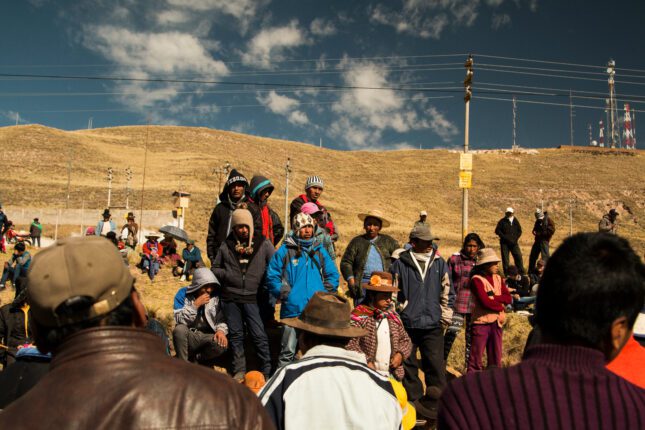-
High Standards in Mineral Supply Chains: A Business Case
›
Much of the current narrative surrounding critical minerals puts speed and competition in the foreground. Yet the how of mining matters immensely to create and maintain stable mineral supply chains. Reliable and diversified supply chains create win-win scenarios for all stakeholders by incorporating best-in-class environmental standards and true community partnerships.
-
ECSP Weekly Watch | March 3 – 7
›
A window into what we’re reading at the Wilson Center’s Environmental Change and Security Program
UK and Ireland Will Connect Energy Networks (The Guardian)
Despite post-Brexit trade barriers, the UK and Ireland have announced a collaboration on renewable energy infrastructure to boost both nations’ energy efficiency and security. The deal is part of larger efforts to “harness the full potential” of the Irish and Celtic seas for offshore windfarms and national energy networks.
-
ECSP Weekly Watch | February 24 – 28
›
A window into what we’re reading at the Wilson Center’s Environmental Change and Security Program
EU Parliament Suspends Rwandan Critical Mineral Pact Over Links to DRC Conflict (Mongabay)
Rwanda and the DRC both have large reserves of critical minerals essential to the clean energy transition. Yet the EU has voted to suspend a cooperation agreement on mineral extraction in the region after the Rwandan-backed rebel group M23 seized key areas in the DRC’s eastern provinces.
-
Q&A: Julian Higuera-Florez on Harnessing Environmental Peacebuilding in Latin America and the Caribbean
›
Environmental peacebuilding offers a promising framework to address deeply intertwined environmental challenges and conflict dynamics in Latin America and the Caribbean. So why has it not delivered fully on this promise? In an interview with ESCP, Julian Higuera-Florez, a research specialist in climate, peace, and security at the Alliance of Biodiversity and CIAT and CGIAR FOCUS Climate Security, discussed a new policy brief, Environmental Peacebuilding in Latin America and the Caribbean: Bridging Gaps and Harnessing Opportunities, co-authored with the UNDP Latin America and the Caribbean Hub.
-
Climate Change, Peace and Security: Discourse Versus Action in Asia
›
This year’s World Economic Forum called for greater urgency in discussing the impacts of climate change on human security and social, political, and economic stability. And a recognition of the destabilizing effects of climate change also has led the UN to emphasize the risks they pose to the most vulnerable populations, including poor, conflict-affected, and displaced persons.
-
ECSP Weekly Watch | February 10 – 14
›
A window into what we’re reading at the Wilson Center’s Environmental Change and Security Program
Declining Biodiversity May Increase Risk of Future Pandemics (Mongabay)
The COVID-19 pandemic that spread around the world in 2020 brought normal life to a standstill at many times in the past few years. But far from being a singular event, scientists and health experts warn that pandemics may become more common as biodiversity declines and spillover events become more likely.
-
Mining for Change: Obert Bore on Human Rights and Development Amid Zimbabwe’s Mineral Boom
›
As global interest in critical minerals heats up, countries like Zimbabwe—which holds Africa’s largest reserves of lithium—are facing new opportunities for investment and development. But these opportunities can also come with risks and challenges for producing countries. In this episode of New Security Broadcast, the Wilson Center’s Claire Doyle and Jennifer Nguyen are joined by Obert Bore, who serves as the Business & Human Rights Program Lead at the Zimbabwe Environmental Law Association. Bore is an expert in international trade, Chinese investments in Africa, and natural resource governance, and has long worked to advance policy reforms to strengthen human rights protection for communities impacted by mining.
A Chinese language (中文) version of this podcast is available on SoundCloud.”
-
Beating the Backlash: Can Incremental Approaches Strengthen NGO Responses to Security-Based Migration Policies
›
On October 2, 2024, Dominican President Luis Abinader launched a large-scale deportation operation through the National Security and Defense Council. Framed as an “emergency” security measure to “protect national sovereignty and address migration challenges,” the operation aimed to deport 10,000 Haitian migrants every week.
Showing posts from category livelihoods.









